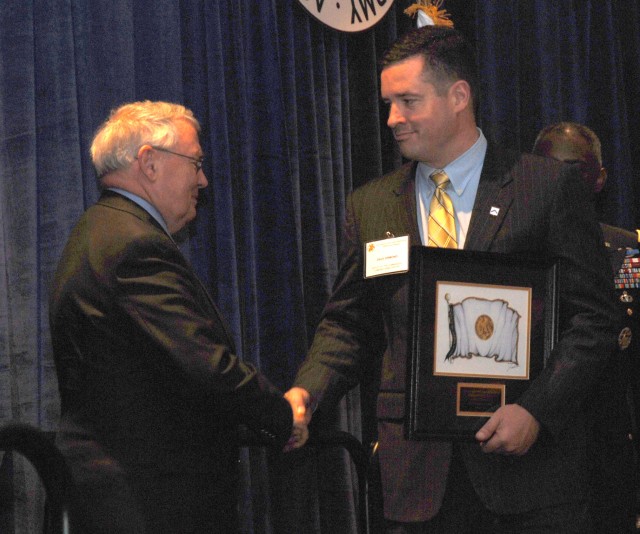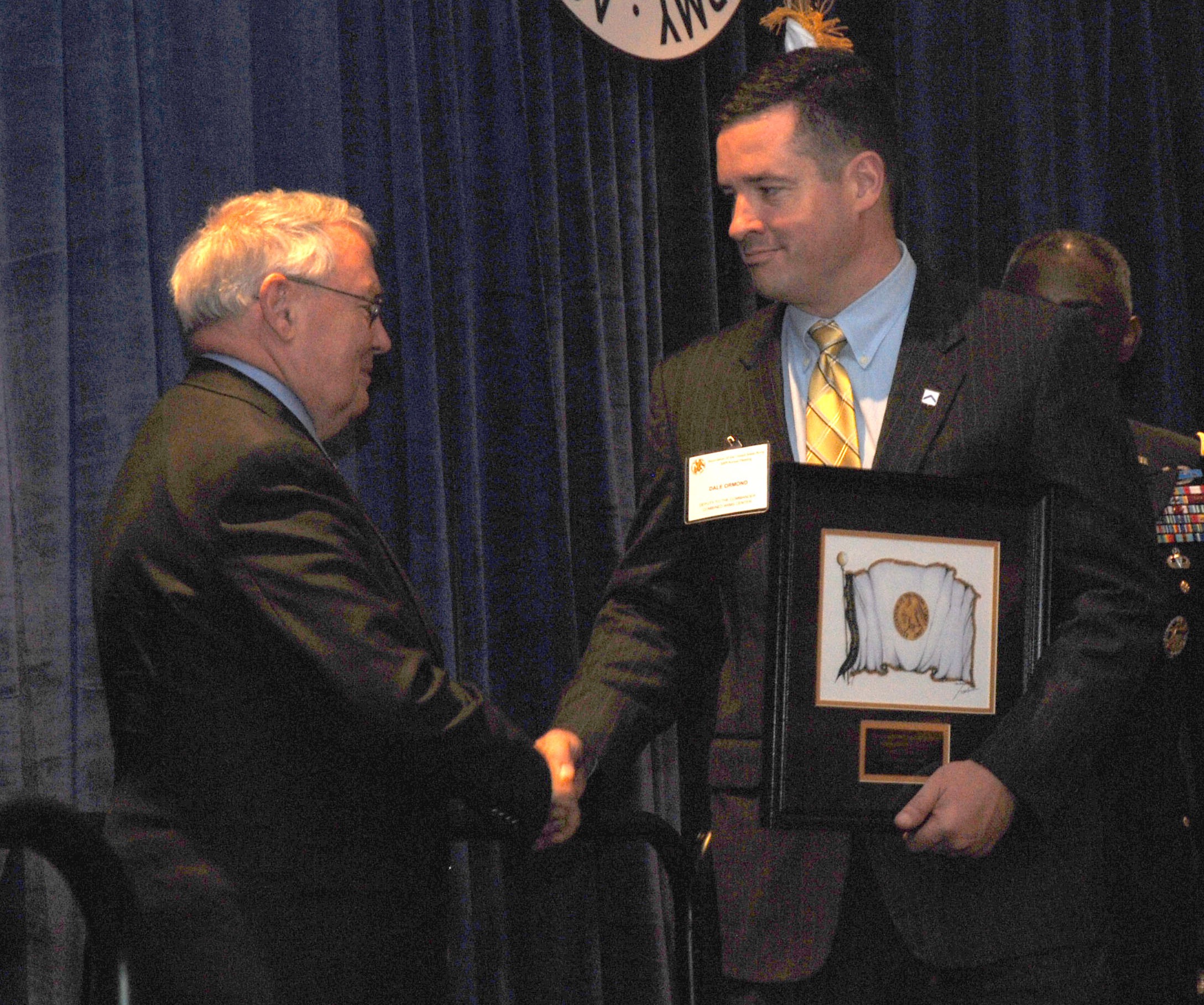WASHINGTON (Oct. 7, 2009) - Dale Ormond, deputy to the commanding general at the U.S. Army Combined Arms Center, was recognized as the recipient of the 5th Region Award for Outstanding Civilian Achievement at the Association of the United States Army Annual Meeting here today.
Ormond was awarded for strengthening the community relations program in the Fort Leavenworth, Kan. and his role in spurring organizational change at CAC since his arrival in the summer of 2008.
"The relationship with the community was positive, but episodic," he said about his arrival at CAC. "There was no real ability to establish strong relationships because they had four [commanding generals] in five years."
Without a consistent relationship given the turnover in commanders, local businesses and Leavenworth leaders were unable to plan for the future. Ormond began to plan monthly meetings with the leaders of local business and elected officials to clear the communication lines.
"A lot of facilitation was done among themselves because this was one of the few meetings they found valuable," he recalls.
Through quarterly meetings, golf scrambles and town halls, Ormond says that it built a clearer and stronger communication channel, especially when it came to debunking rumors. Earlier this year, a rumor had hit the Leavenworth community that detainees from overseas were going to be brought to Leavenworth.
"People were really upset about this," he recalls. The rumor began to rise through the city council and the city manager before Ormond could intervene.
"The city manager calls me on the phone and said, 'Hey, we're hearing that you guys are executing eminent domain outside the post'," he said. After talking with other government leaders, Ormond discovered that the U.S. prison system was looking at the opportunity of buying land around the area to build another prison.
"But if they didn't have me to call ... things would get sensationalized, and something would end up on the news with no fact because they didn't have a conduit into the post at a high enough level where they can check on what the reality is," he said.
The way ahead for CAC will bring uncertainty due to the budget. CAC has benefited from supplemental funding, but is preparing to adjust. Ormond commits himself to transparency for those stakeholders.
"I think the biggest challenge to CAC in the next few years is figuring out what programs are of greatest value to the Army and what is the value of effort of those that have enduring value," he said. "And when the funding starts to go down, how we go about prioritizing how much money we apply to each of those tasks and functions; and how we communicate that to the bill payers and the rest of the Army."
The Army is beginning to see a growing number of senior civilians working alongside general officers. Ormond believes that this is a positive way to fill leadership gaps while creating lasting impressions on the organization.
"With two wars going on in Iraq and Afghanistan, you need senior people in these organizations to provide that strategic thinking and that leadership so things go in the right direction," he said. "The vast majority of Army civilians I've worked with are extremely motivated, they love working for the Army, they love supporting Soldiers, they think what they're doing is important and they want to do great work. Sometimes you just have to remove the roadblocks that may keep them from doing their jobs, and that usually means making a phone call, sending an email or scheduling a meeting to clear the roads for them to do their job."


Social Sharing